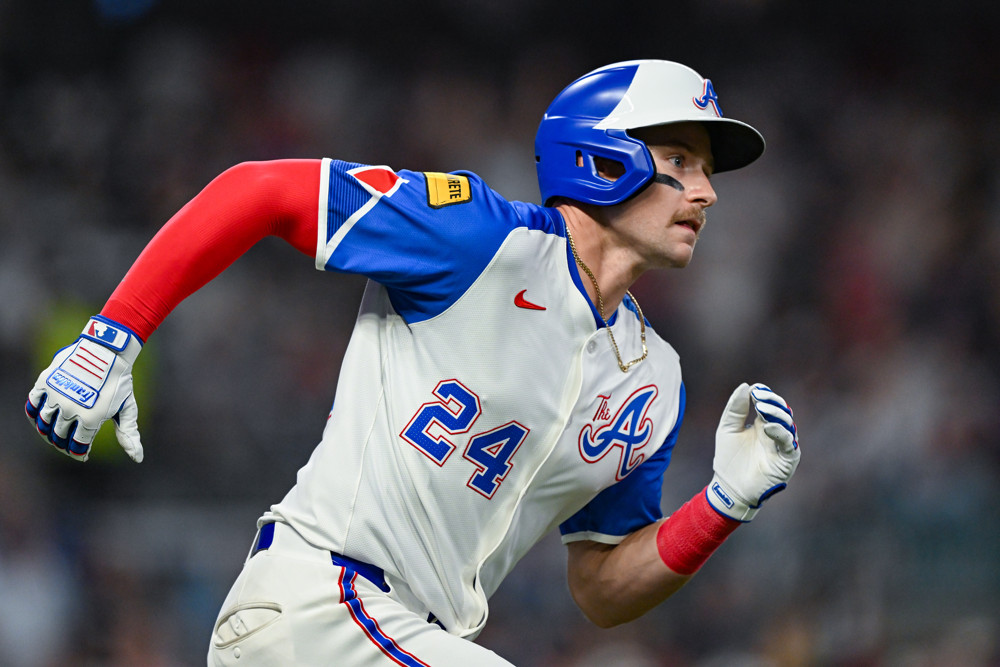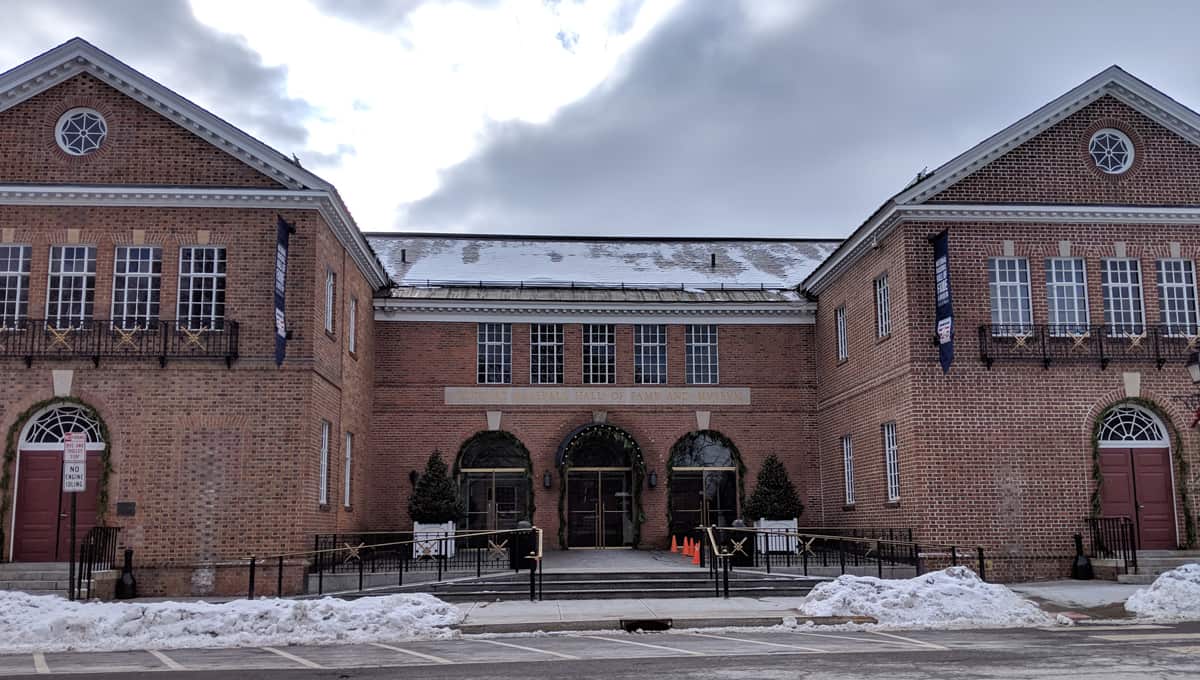Another Major League Baseball proposal is upon us, but more vitally, it's upon the Major League Baseball Players Association as well.
And it probably won't be for long. The league is asking players to accept a 50-50 revenue spit instead of prorated 2020 salaries, which The Athletic called a "non-starter."
The details about the proposed 82-game season are secondary at this point, because the floating of a revenue-based compensation system suggests to me that this opening offer is less designed to start a season, and more designed to start something else.
Of course, how much one perceives that comes down to which article one reads.
Bob Nightengale, whose reports are the least subtle when they come from the owners, framed the revenue-sharing plan as "historic," which is about the softest accurate word to describe any unfortunate event. If you used the word "historic" to describe the flight of the Hindenburg, it's probably because you didn't know what happened, or you don't want others to know.
A few other choice phrasings:
The people, who spoke on the condition of anonymity because they were unauthorized to discuss details, said the historic revenue-sharing plan is integral in order to to address revenue losses with an 82-game season being played without fans beginning in July. MLB officials say that teams are expected to lose about 40% of their gross revenue from ticket sales, concessions and parking.
And:
The players’ compensation has never been tied to club revenues.
This is the first time MLB clubs would be willing to share revenue with players during the regular season, although it exists in the three other major team sports.
What's not said? The word "test" doesn't appear in any of its variant forms. The only real nod toward one of the elephants in the room comes in the last sentence:
MLB cautions that their plan remains fluid with the unpredictability of the COVID-19 pandemic, requiring the approval of health experts and governmental officials.
That's kind of a big sticking point, because as the New York Daily News' Bradford Davis pointed out, assuming testing will be sufficient without directing resources away from the general public has bit them before.
The ESPN report spearheaded by Jeff Passan, but with contributions from T.J. Quinn and Jesse Rogers, paints a fuller picture. It cites the previous agreement between players and owners, with a response from MLBPA Executive Director Tony Clark that says salary cap proposals are not historic.
"This is not the first salary-cap proposal our union has received. It probably won't be the last. [...] That the league is trying to take advantage of a global health crisis to get what they've failed to achieve in the past -- and to anonymously negotiate through the media for the last several days -- suggests they know exactly how this will be received."
It also puts testing and safe-workplace concerns -- most thoughtfully articulated by Washington Nationals reliever Sean Doolittle in a Twitter thread -- ahead of all the nuts and bolts of all the proposed season.
If the story comes up short, it doesn't get into the other problem of a revenue split, which is what a team actually defines as revenue. With the increasing number of revenue streams and paydays from non-gameday sources -- TV deals, casino deals, corporate partnerships, the BAM technology sale, real estate and other team-adjacent spinoff companies -- it makes sense that a team would want to declare as few of these as possible for the 50 percent pool. That's a fight in other sports as well.
The Athletic took a different tack, breaking the story into two separate articles. Ken Rosenthal and Evan Drellich let the two sides argue over whether the league is imposing a salary cap, or something different enough to get by (they also discuss the difficulty with assessing "revenue"). Then Rosenthal dedicates an entire article to safety concerns, specifically for immuno-compromised players who are especially vulnerable. Assuming both stories get equal play, that's probably the better way to handle it.
* * * * * * * * *
When taking an even bigger step back, it's easier to keep tabs on the active and subconscious forces that owners can use to their advantage. When the players were on the losing side of an unfair deal -- the stagnant free agent market and service time manipulations amid years with record-setting revenues -- less sympathetic fans suggested the union should've negotiated better, and maybe they'll have better luck after 2021. That would at least be an ethos if those same fans were telling the league to suck it up regarding the previous prorated salaries agreement, but I'm guessing that's not the case. From TV deals to public stadium financing to chipping away at the CBA, owners are on quite a winning streak, so much so that they seem to consider a down year either unthinkable or unenforceable.
A troika of Craigs all ran posts looking at the stacked deck from the other side:
*Craig Calcaterra, Hardball Talk: Source: 'There is going to be a war' if owners seek further player salary reductions
*Craig Edwards, FanGraphs: After years of profits, MLB owners ask players to subsidize potential losses
*Craig Goldstein, Baseball Prospectus: Deep, But Playable: Privatize the profits, socialize the losses
All of these articles by the Craig Council lead with the overlooked points -- the reneging of a previous deal, the issues with player safety, the lack of transparency with revenue -- before anything else. If they even address anything else. Personally, that approach more closely aligns with how I process and relay the news. It's been more frustrating than fun mining the various proposals, because the early ones usually underplayed the public health issues like testing, and different areas of the country being on different timelines. That's still present, and now here come the equally vital financial issues that require just as much vigilance to properly scrutinize.
Such vigilance is tough to sustain in any area right now, because quarantine fatigue is real. People want normalcy, and they're liable to become less stringent on how they try to get there, especially if the cues from above fracture in any way. Gaps in messaging create uncertainty, and that uncertainty can be exploited.
If you're super-cynical, you might even doubt that the league thinks it can execute a season. It's just presenting games as theoretically possible with big headlines in order to put the MLBPA on the defensive for future use, because the union can't count on fans reading the finer print about workplace safety and previously established payroll agreements. The players have work to do in countering these tendencies, although if the league and country continue to undersell the persistent threat of COVID-19 spikes, science may have more to do with the lack of a season than either party in the end.
* * * * * * * * *
In related news:
*KBO reporter Daniel Kim says South Korea has its own problems with vigilance as restrictions are relaxed:
*At FanGraphs, Jay Jaffe wrote about a cause near and dear to my heart -- how the coronavirus shutdown poses a major threat to Cooperstown's economy. The village can only live off the largesse of my wedding for so long.
*An old friend is a fan of Edwards' article:
(Photo by Arturo Pardavila III)






